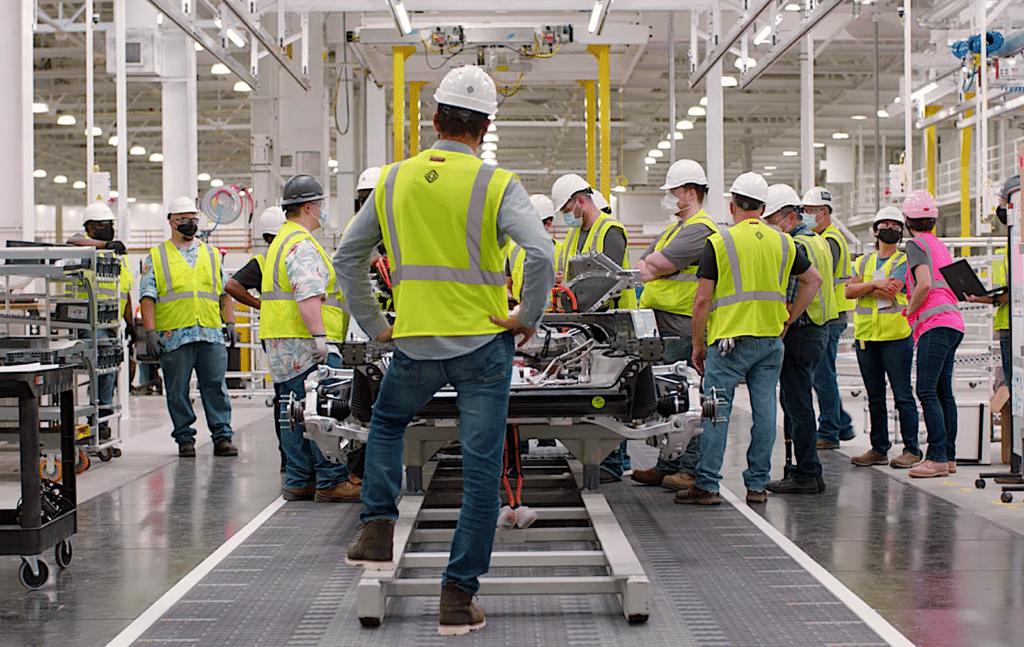Rivian Automotive Inc. announced it’s recalling nearly every vehicle it has sold to date, about 13,000 trucks out of the roughly 14,000 that have been made this year.

As a result, the company’s stock slid about 10% on the news before rallying to close the day at $31.48 a share, a fall of 7.3 percent. The drop continues a rough year for the startup EV truck manufacturer.
The problem causing the recall is very simple: some of the nuts that hold the front suspension together may not have been torqued down properly and could come loose. If the nut comes all the way off, the front suspension could separate and cause a crash.
The fix for the potentially loose nuts is simple. Just bring the Rivian to a service center and they’ll check torque on the nuts and make sure they’re tightened properly. The recall shouldn’t cost Rivian any more than the time sunk at the service center.
“It’s important not to minimize the potential risks involved and why we are volunteering to conduct this recall,” said Rivian CEO R.J. Scaringe.
Market response

The less tractable issue is how it’s affecting Rivian in the market. Investors are jittery right now, and any indication that a nascent automaker may not have its quality control nailed down is certain to shake confidence in the company’s future. This kind of rookie mistake is certain to cost Rivian in the market.
The current recall’s impact is compounded by a recall in May, when Rivian pulled back about 500 of their trucks because the passenger-side airbag did not consistently deactivate when a child was present in the front seat.
Another factor working against Rivian is the prospect of recession. Rivian offers a high-end product, typically an optional purchase. If the economy takes a general downturn, Rivian could feel the pinch more than traditional automakers.
A rocky road
When Rivian went public Nov. 9, 2021, it was the biggest IPO of the year, raising about $11.9 billion for the company. That was also the largest amount raised since the Facebook IPO of 2012.
At the IPO, the stock went quickly to its 52-week high of $179.47, but has been sliding ever since. The 52-week low of $19.25 coincided with the first recall back in May.
At last report, Rivian has about $15.5 billion in cash on hand, but the company has not yet turned a profit and has a prodigious burn rate for its cash. Rivian has previously stated that the cash on hand is enough to carry the company through 2025.
One point of hope for Rivian is this: Both Ford and GM saw their stocks drop between 5%-8% today on general economic jitters, so Rivian’s woes may be reflective of a broader sell-off in the segment.







